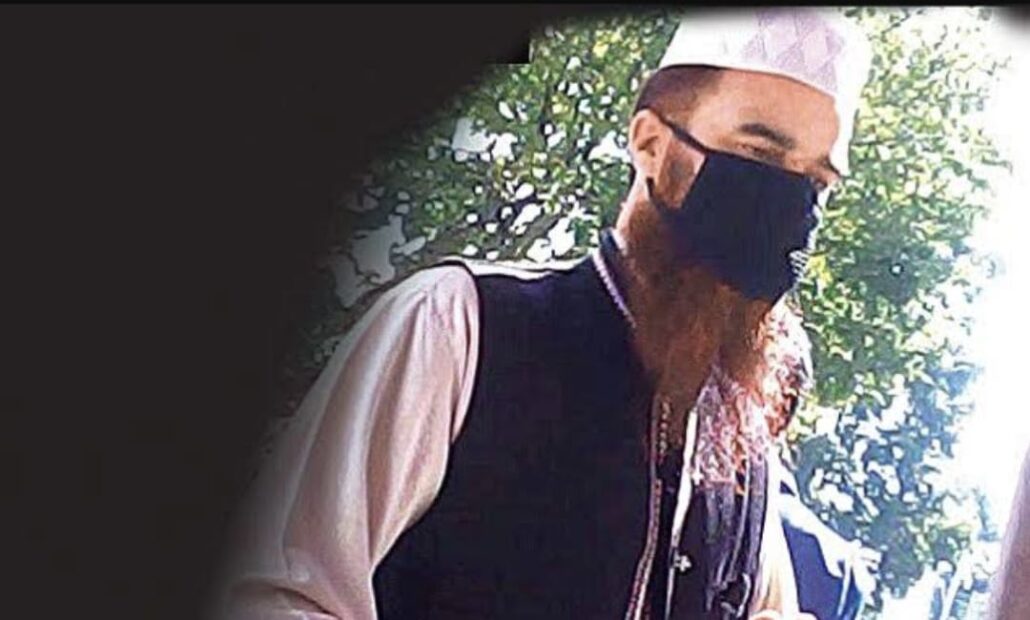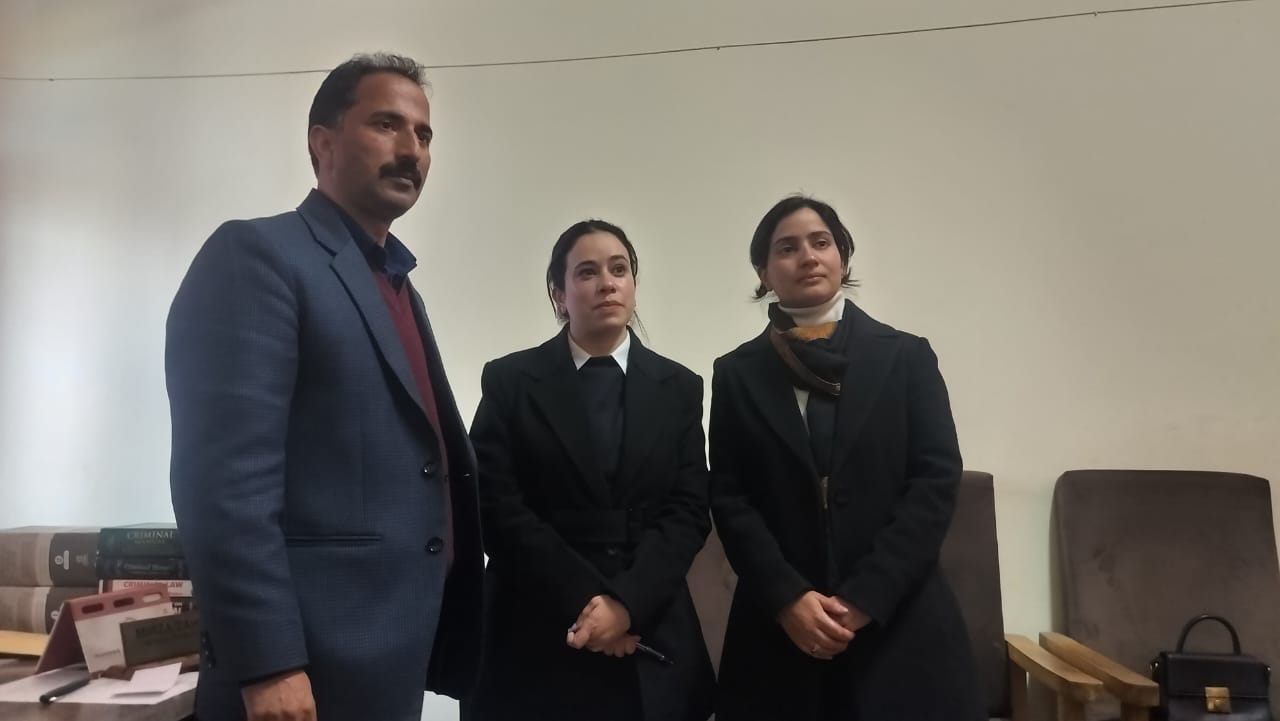
Aijaz Ahmad Sheikh, has been convicted by the Chief Judicial Magistrate Baramulla at Sopore for sexually abusing multiple minors under the guise of spiritual healing.
The sentence, handed down on February 17, 2025, came after a lengthy trial and was issued under Section 377 of the Ranbir Penal Code (RPC).
The case, filed under FIR No. 22 of 2016 on March 2, 2016, was brought to court by the father of one of the primary victims. The prosecution, led by Mr. Mirza Zahid Khalil, Additional Public Prosecutor, argued that the accused misused his religious influence to exploit vulnerable children, causing severe emotional and psychological trauma.
The defense, represented by Mr. M.M. Mir and Mr. B.A. Malla, attempted to claim the case was fabricated, but the court rejected this argument, pointing out that the delay in filing the FIR was understandable given the victims’ fear of supernatural harm and their psychological trauma.
The judge, as per The Kashmiriyat, remarked, “The accused misused his religious influence to exploit vulnerable children, causing severe emotional and psychological trauma.”
The court noted that the victims’ testimonies were consistent throughout the trial, despite facing rigorous cross-examination. The courage shown by the victims in recounting their harrowing experiences was acknowledged by the judge, who emphasized that their accounts remained unwavering.
The court stated, “PW8 and PW3 have courageously recounted harrowing accounts of their suffering, and their testimonies remain unwaveringly consistent.”
The judgment also referred to various Supreme Court rulings, reaffirming that delays in reporting sexual offenses do not undermine the credibility of the victims’ testimonies. The sentence aimed to serve both as a deterrent and as retribution, ensuring that such perpetrators are held accountable for their actions.
The court noted, “Sentencing must reflect the gravity of the crime and ensure that such perpetrators do not escape liability.”
In addition to the sentence, the court instructed the Superintendent of Police, Sopore, to register separate FIRs for other victims whose abuse was outside the immediate timeframe of the trial, ensuring that their claims are independently adjudicated.

Victim testimonies
PW8 (Primary Victim)
PW8 was taken to the accused’s house by his uncle in 2012 for what was supposed to be spiritual healing. The accused manipulated him using religious authority and supernatural threats, as per the detailed order observed by The Kashmiriyat.
“When the Jinn entered his body, he told me that my uncle had a serious problem that needed to be fixed at night. He sent me into another room where another child was already present.”
“At night, he made us sleep in his room. He stripped the other child first and raped him in front of me. Then he forced me to undress. I resisted, but he said if I spoke, the Jinn would destroy my entire family.”
“He raped me while covering my mouth so I wouldn’t scream. Then he made me rape the other child and made that child do the same to me.”
“This happened over four years. Every time, he threatened that he would bring destruction upon my family if I resisted or spoke.”
PW8 remained silent for years, fearing supernatural retribution. He only spoke out when he saw a Facebook page about child abuse.
PW3 (Another Victim)
PW3 was another victim subjected to abuse under similar circumstances.
“He took me in under the guise of spiritual healing. The first night, he hugged me tightly but did nothing. The next time, he said, ‘You must come with me, I have work for you,’ and then he raped me.”
“He would say that I had an evil spirit inside me and only he could cure it. But the ‘cure’ was always the same abuse”, the victim testified as per the copy of the order accessed by The Kashmiriyat.
“I saw him abusing other children too, but we were all too scared to say anything. I told my father years later, and that is when the case was filed.”
PW4
PW4 described how the accused gained his trust before assaulting him.
“He first acted like a mentor. He would give me small tasks and offer rewards. But then he started forcing me to stay over at his house.”
“One night, he told me that my work would not be successful unless I ‘proved my loyalty.’ That night, he raped me.”
“I was scared because he said he had powerful spirits who would harm my family if I resisted.”
PW5
PW5 was a bright student whom the accused lured in using his position as a teacher.
“He was a Quran teacher at our school. At first, he would just touch me. Then he started calling me to his house, saying he would help me pass exams.”
“One day, he said I had to do something in return. He raped me and then told me to keep quiet if I wanted to continue my studies.”
“I failed that year. I couldn’t focus anymore. I never went back.”
PW7
PW7 was an older victim who recalled an incident from his teenage years.
“I was 16 when he called me to his house, saying he had a special prayer to remove evil from my body.”
“I believed him. He started touching me and saying he was transferring divine energy. Then he forced himself on me.”
“Afterwards, he said if I spoke about it, I would be cursed forever.”
“I didn’t speak for years. I thought it was my fault”, the order, of which a copy is available with The Kashmiriyat read.
PW9
PW9 described being taken advantage of as a child and being too scared to tell anyone.
“He first assaulted me when I was 10. I didn’t understand what was happening. I just knew I was terrified.”
“He told me I was special and that this was a secret ritual. When I cried, he told me I was weak.”
“I still have nightmares about that room.”
PW11
PW11’s account was crucial in showing the long-term effects on survivors.
“I saw him destroy so many children’s lives, including mine.”
“Many of us left school. We couldn’t function normally. He made us feel like we had no choice but to obey.”
“This wasn’t just rape—it was systematic destruction of young minds.”
What did the court say
The court convicted Aijaz Ahmad Sheikh under Section 377 RPC, ruling that “the prosecution has successfully discharged its burden of proving the guilt of the accused beyond a reasonable doubt.” The judge, as per The Kashmiriyat, noted that the testimonies of the victims, PW3 and PW8, were “consistent, cogent, and unshaken despite rigorous cross-examination.”
He further stated that the accused’s defense, which claimed the allegations stemmed from financial enmity, was “wholly unsubstantiated,” and added that the accused had failed to establish any credible motive for the victims or their families to falsely implicate him.

Regarding the delay in lodging the FIR, the judge observed that “the delay is adequately explained and, given the nature of the offense, is not fatal to the prosecution’s case.” He explained that the delay was due to the victim’s fear of retaliation by the accused, who had significant social influence as a religious figure.
The court also emphasized that the accused exploited the vulnerability of the victims under the guise of offering blessings, stating, “The accused subjected the victims to unnatural sexual intercourse during their minority.”
“The victims’ testimonies remained consistent throughout the trial,” the court noted, asserting that “minor discrepancies do not vitiate an otherwise credible prosecution case if the core of the allegation remains intact.”
In addition, the judge highlighted the legal justification for the joint trial, stating, “The offenses formed a continuous pattern of criminal conduct,” and that it was appropriate to consolidate the charges under Section 223 JK CrPC.
Lastly, the court pointed out that the lack of medical evidence was not a significant issue, stating, “The victim’s testimony, being consistent and credible, is sufficient to establish the accused’s guilt.”
The judge remarked that the accused’s misuse of his religious status to exploit vulnerable children was a critical factor in the conviction.




